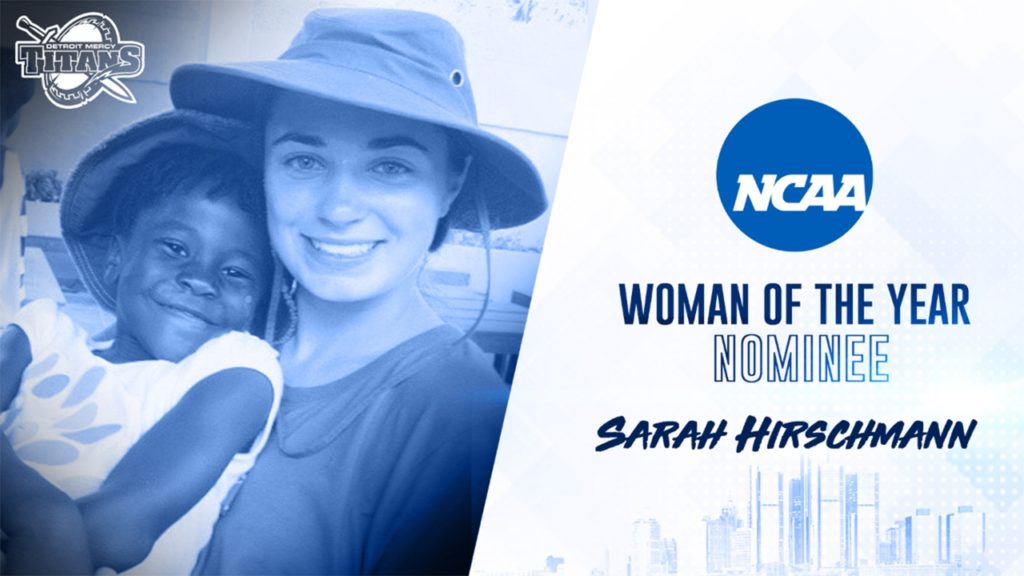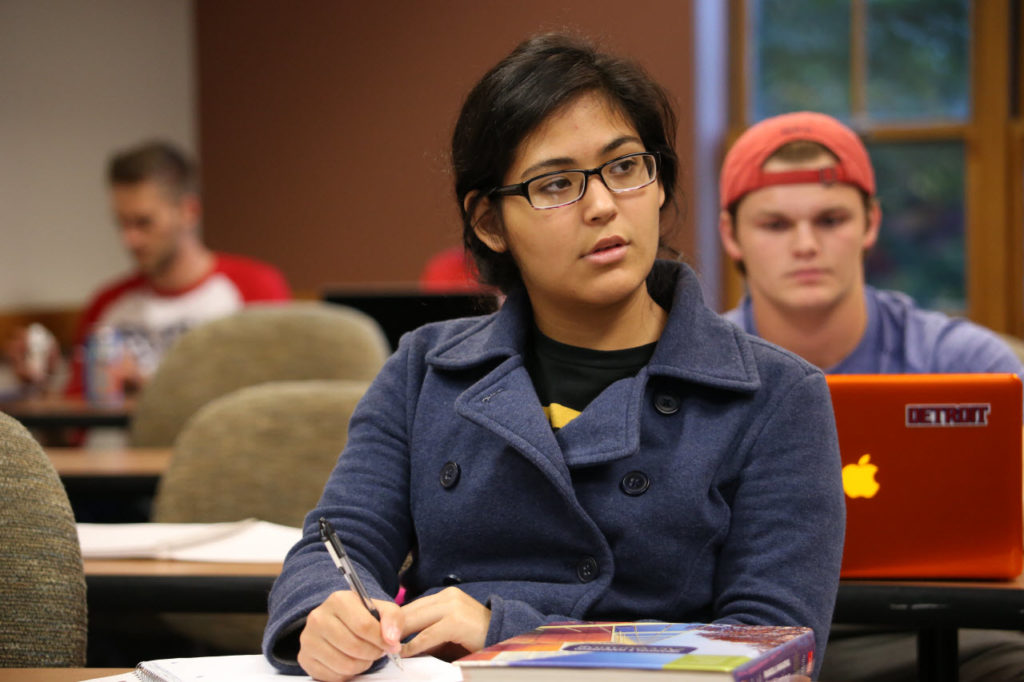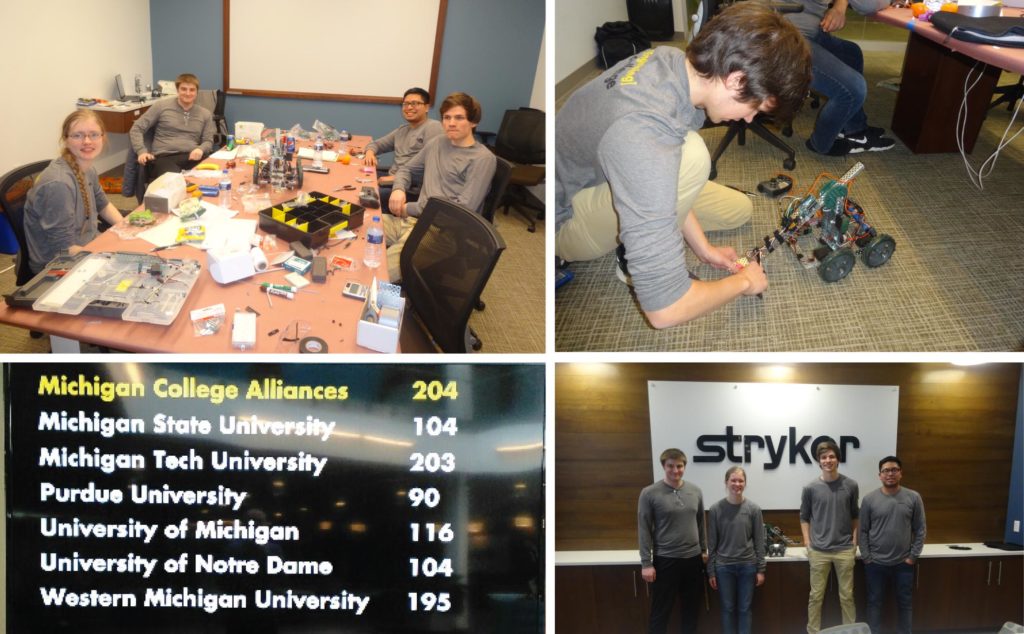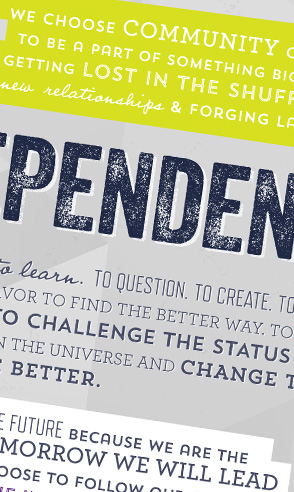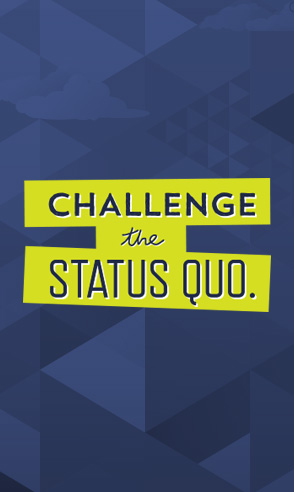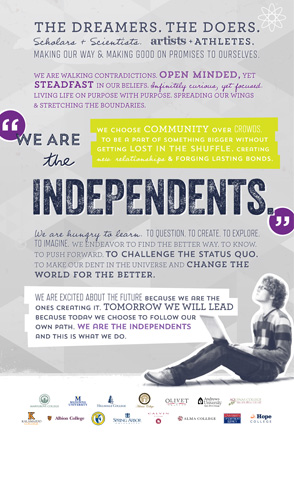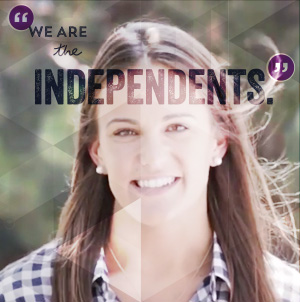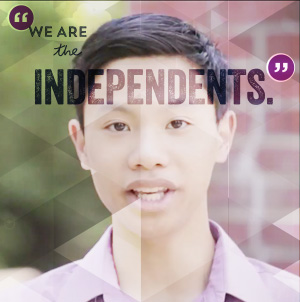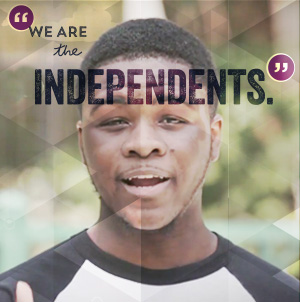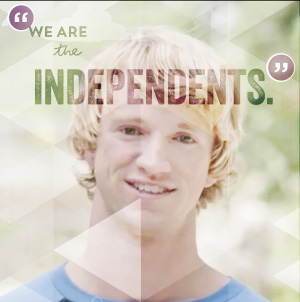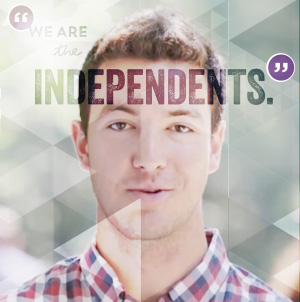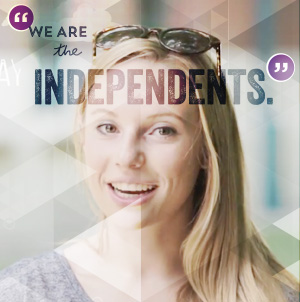Archive for
Aquinas College, the University of Detroit Mercy, Alma College and Olivet College among the nation’s top military-friendly schools
Originally posted at https://www.aquinas.edu/life-aq/posts/aquinas-college-named-one-nation’s-top-military-friendly-schools?fbclid=IwAR1xOvj_xPA0nMVZczsQoHRjQ4bk_6MrMCne3nSR-Alei64K8QmZ8i8bSXc
Aquinas College, the University of Detroit Mercy, Alma College, and Olivet College have each earned the 2021-2022 Military Friendly® School designation by Viqtory for their support of active-duty military members and veterans attending school.
The 2021-2022 Military Friendly Schools list is the longest-running and most comprehensive review of college and university commitment to serving military and veteran students. It helps service members and their families select schools that will provide education and training necessary to pursue a successful civilian career.
The list is published by Viqtory, a service-disabled, veteran-owned small business that connects the military community to civilian employment, educational and entrepreneurial opportunities through its G.I. Jobs and Military Friendly brands. The list will appear in the May issue of G.I. Jobs magazine and can be found at www.militaryfriendly.com.
“Military Friendly is committed to transparency and providing consistent data-driven standards in our designation process,” said Kayla Lopez, National Director of Military Partnerships at Military Friendly. “This creates a competitive atmosphere that encourages colleges to consistently evolve and invest in their programs. Schools who achieve designation show true commitment and dedication in their efforts. Our standards assist schools by providing a benchmark that promotes positive educational outcomes, resources, and support services that better the educational landscape and provide opportunity for the Military Community.”
Institutions earning the Military Friendly School designation were evaluated using both public data sources and responses from a proprietary survey. More than 1,200 schools participated in the 2021-2022 survey with 747 earning the designation.
Methodology, criteria, and weightings were determined by Viqtory with input from the Military Friendly Advisory Council of independent leaders in the higher education and military recruitment community. Final ratings were determined by combining the institution’s survey response set and government/agency public data sources, within a logic based scoring assessment. We measure the institution’s ability to meet thresholds for Student Retention, Graduation, Job Placement, Loan Repayment, Persistence (Degree Advancement or Transfer) and Loan Default rates for all students and, specifically, for student veterans.
Michigan’s independents recognize the importance of the sacrifices made by veterans, and make accommodations from mentoring programs and support services to ease the transition.
The colleges are purposefully small. Smaller class sizes allow passionate faculty to form bonds with students that just aren’t possible at larger universities. Instead of crowds, the colleges emphasize community. Often less expensive than public institutions, the independents boast higher four-year graduation rates and smaller class sizes for a truly unique and affordable experience.
Be bold. Be different. Go independent.
UDM alumnus nominated for NCAA Woman of the Year
Sarah Hirschmann, the 2020 University of Detroit Mercy valedictorian and former women’s soccer goalie, just earned another impressive accolade. She’s a nominee for the 2020 NCAA Woman of the Year Award.
The award was established in 1991 to recognize graduating female student-athletes who have exhausted their eligibility and distinguished themselves in academics, athletics, service and leadership throughout their collegiate careers. The NCAA Committee on Women’s Athletics will name the 2020 NCAA Woman of the Year this fall.
Sarah graduated from Detroit Mercy with a Bachelor of Arts in Literary Arts in Primary Education, specializing in Language Arts with a minor in Leadership, with a 3.97 GPA. She was a member of the women’s soccer team from 2015-18, a four-year member of the Detroit Mercy Athletic Director’s Honor Roll and a three-time member of the Horizon League Fall and Spring Academic Honor Roll.
Away from athletics, she started a non-profit group, volunteered and played a key role in a number of University events.
In 2015, Sarah started “One Kid At A Time”, a non-profit organization sponsoring the education of two students in Kenya, and distributing funds throughout Detroit. She also spent two summers with the International Volunteer Headquarters (IVHQ), teaching children ages 1-16 in Nairobi, Kenya and Faridabad, India.
Locally, Sarah volunteered with Ford Community Corps Partnership, working at Detroit Public Schools with fifth graders and students with behavioral disabilities to improve mathematics and social skills through educational card games. In addition, she worked with the Zoe Counseling Services of the Detroit Public Libraries, tutoring students in and out of foster care and those who have fallen behind grade level and need extra help.
One of her big efforts on campus saw her take part in the National Jesuit Student Leadership Conference (NJSLC), where she helped lead a committee of 20 students to create the conference with Detroit Mercy serving as host for the first-time ever in 2019. Sarah also was part of the Ignatian Family Teach-In For Justice (IFTJ), a national social justice conference in Washington, D.C., where students gather from around the country to learn about more ways to fight injustice and advocate for themselves and others.
Sarah is indisputably a model scholar-athlete. Her commitment to excellence in the classroom and on the field is strong and her dedication to her community–both locally and around the world–is unwavering. It’s an outlook that’s prevalent at the University of Detroit Mercy and Michigan’s top 14 private colleges and universities. Purposefully smaller, the colleges and universities pride themselves on helping students follow their own path, engage in the world around them, and find their passion. They emphasize community over crowds and a spirit of togetherness and cohesion.
Be bold. Be different. Go independent.
Make Your College Campus Visits, Virtually
While in-person admissions visits at Michigan’s top 14 private colleges and universities have been canceled due to the coronavirus pandemic, prospective students can still explore these beautiful campuses with the click of a button!
With virtual tours available, you can still get the chance to “walk” the campus, see and feel what life could be like for the next four years. The online tours not only give you a peak into each campus, but many schools even allow you to schedule an online information session with a live admissions counselor! Get your questions answered and make an informed choice now from the comfort of your home.
Get more information in the links below:
Alma College Virtual Tour | Schedule a Virtual Visit
Andrews University Virtual Tour | Sign up for a Virtual Preview
Aquinas College Virtual Tour | Schedule a Virtual Personal Visit
Calvin University Virtual Tour | Schedule a Virtual Visit
Hillsdale College Schedule a Virtual Visit
Hope College Virtual Tour | Schedule a Virtual Visit
Kalamazoo College Virtual Tour | Schedule a Virtual Visit
Madonna University Campus Tour Video | Schedule a Virtual Visit
Siena Heights University Virtual Tour
Spring Arbor University Virtual Tour | Schedule a Virtual Visit
University of Detroit Mercy Virtual Tour | Sign up for a Virtual Information Session
UDM accounting students earn #1 ranking for first-time CPA exam pass rates
The first-time pass rate of University of Detroit Mercy accounting graduates who take the Certified Public Accounting (CPA) exam is the best in the nation, according to the National Association of State Boards of Accountancy (NASBA). NASBA reported the new rankings in the 2018 edition of Candidate Performance on the Uniform CPA Examination.
Data released this week by NASBA indicate that Detroit Mercy students and alumni achieved a 95% pass rate and an average test score of 87.5 on the 2018 CPA exam. The University was one of only two institutions in the nation to achieve a pass rate of at least 90%.
The first-time pass rates of Detroit Mercy students have ranked among the best in the United States for three straight years. NASBA’s full report is available at https://www.nasbareport.com/
Joseph G. Eisenhauer, dean of the College of Business Administration, said, “Having the top pass rate in the nation on the CPA exam reflects the excellent academic preparation and personal attention that our Accounting students receive from our outstanding faculty. Our graduates enter the job market ready to succeed as professionals in their chosen careers and the consistency with which we’ve been nationally ranked demonstrates that our quality never waivers.”
Among all 63,088 first-time test-takers, covering institutions of all sizes nationwide, the average pass rate was 57.5%, and the average test score was 72.9.
Holly McCartney, ’17, MBA ’18, who passed all four sections of the CPA exam last year and now works as a financial advisor at Plante Moran, said, “The Accounting Program at University of Detroit Mercy does an incredible job of preparing its students to pass the CPA Exam. The University recognizes the value of the CPA certification, but also how challenging it can be. The professors are dedicated to equipping students with the technical knowledge required to pass the exam and also providing motivation and support along the way.”
Michigan Colleges Alliance Team Wins 2019 Stryker Engineering Challenge
For the past five years, Michigan Colleges Alliance (MCA) has fielded a team of four students from its member schools with engineering programs to compete in the annual Stryker Engineering Challenge. For the first time this year, the MCA team won against competing teams from Michigan Technological University, University of Michigan, Michigan State University, Western Michigan University, Purdue University, and University of Notre Dame. The winners of the competition received a $1,000 scholarship (each) and an interview opportunity for a 2020 internship.
The Stryker Engineering Challenge is an overnight challenge where teams are given materials and approximately 12 hours to build a robot vehicle designed to navigate the challenge. Each robot is remote-controlled and tested in a 30-minute competition. During the competition, the robots are challenged to pick up Legos and race through an obstacle course. This year marked the ninth annual challenge with teams representing eleven different schools.
This is the fifth year that MCA has fielded a team. In 2015, the MCA team came in second place, and this year they won. The team was comprised of Devin Garcia & Jeremy Barrett of Andrews University, Denise Roorda of Calvin College, and Joshua Cormier of University of Detroit Mercy. The team took first place with 204 points and Michigan Technological University was a close second place with 203 points.
The students from the Michigan Colleges Alliance team had never worked together before the Stryker Challenge as they each attend different schools. Their victory is a testament to the high-caliber MCA schools and students, and their ability to work collaboratively in new situations.
Michigan Colleges Alliance is very appreciative of Professor Gunnar Lovhoiden, professor of engineering at Andrews University, who has served as the faculty mentor each year for this competition. Each year, he has generously donated his time during spring break to take on this role demonstrating an example of the strong student-faculty relationships valued at MCA schools. “The MCA team worked really well together and maximized their performance by making good design decisions,” he says.
Hyun Kwon, chair of the Andrews University Department of Engineering, adds, “I am so proud of our students. They have proven the ability to successfully compete at such a high level and against much larger schools.”
Detroit Mercy Civil Engineering student one of eight in U.S. invited to Washington, D.C., legislative fly-in
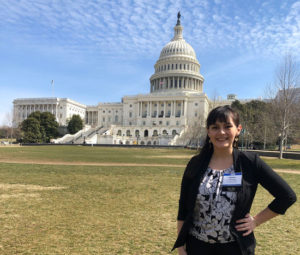 Emma Hagel is passionate about the public policy concepts involved in civil engineering. University of Detroit Mercy’s educational environment — from encouraging professors to an array of professional opportunities — helped that passion blossom into a life-changing experience.
Emma Hagel is passionate about the public policy concepts involved in civil engineering. University of Detroit Mercy’s educational environment — from encouraging professors to an array of professional opportunities — helped that passion blossom into a life-changing experience.
Hagel, a senior studying civil engineering at Detroit Mercy, recently participated in a legislative fly-in for the American Society of Civil Engineers (ASCE). This annual public policy program in Washington, D.C., — called a “fly-in” for the primary method of transportation to attend the event — provided Hagel an opportunity to combine public policy and civil engineering, network with professional engineers and engage elected officials on infrastructure issues.
But the overall experience proved to be much more — she says it has opened a new professional door.
Rather than work in engineering as planned, she has decided to pursue a legislative career and hopes to further her education through public policy master’s programs.
“I believe that Detroit Mercy encourages students to pursue interests outside of their field to create well-rounded professionals,” said Hagel, whose English literature and philosophy minors embody just that. “Because of the learning environment at Detroit Mercy, I felt comfortable and encouraged to look into the policy side of engineering and to pursue this opportunity.”
Representing Detroit Mercy in the nation’s capital, Hagel was just one of eight students throughout the country selected to participate in the fly-in and the lone student in Michigan’s five-person delegation. She interacted with an array of people, from engineers who share similar passions to politicians, including her congressman, U.S. Rep. Andy Levin (D-Bloomfield Township).
The purpose of this year’s fly-in, Hagel said, was to lobby elected officials “to act on our nation’s infrastructure funding crisis.”
“We advocated for an increase in the federal gas tax and the approval of infrastructure-related, fiscal year 2019 appropriations,” she said.
During the first day of the event, attending delegations underwent lobbying training sessions and learned about ASCE’s stance on infrastructural issues. By the second day, state delegations were prepared to make congressional visits and present information to legislators and their staff.
Hagel has taken full advantage of Detroit Mercy’s extracurricular offerings, which led to her participation in the event. She finds herself ingrained in student life, holding leadership roles in three organizations—president of the Society of Women Engineers, vice president of ASCE — both Detroit Mercy chapters — and captain of ASCE’s concrete canoe team.
Hagel discovered the event through ASCE government relations emails and was urged to apply by James Lynch and Utpal Dutta, professors of Civil, Architectural and Environmental Engineering at Detroit Mercy.
“The unique environment they have created for civil engineering students at Detroit Mercy has helped me succeed academically and professionally,” Hagel said.
ASCE offers a limited amount of travel grants to help offset costs for fly-in participants. Hagel received one of those grants; the civil engineering department helped cover the rest of the costs.
Hagel’s experience with the event goes well beyond her two days in Washington — it has changed her perspective on civil engineering and paved the way to a boundless future.
“While one can design and implement infrastructure while working in the private or public sector, all projects rely on government funding,” she said. “The way one can create the biggest impact on our nation’s infrastructure is by implementing policy that adequately funds the repair, replacement and creation of it.”
To learn more about Detroit Mercy’s College of Engineering & Science, please visit https://eng-sci.udmercy.edu/index.php.
When is the best time to visit colleges?
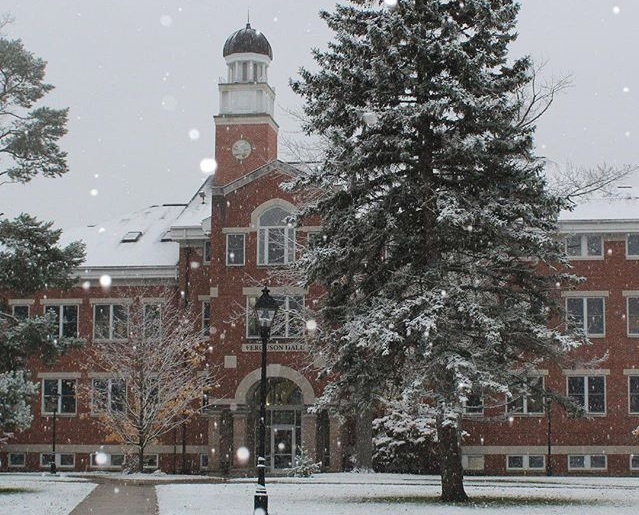
(Albion College, voted 12th Most Beautiful College in Winter)
It’s winter, and the tundra is setting in – at least it is here in Michigan. The last thing you are thinking about is planning a trip to visit campuses. Those long walks across snow-covered quads are certainly less appealing when the temperatures are teetering at the same level as the number of layers you’ll be wearing to stay warm. Or maybe you are a freshman or sophomore, and it’s just “not time yet.”
So, “When is the best time to visit?” The answer may not be what you expect. Here are some tips for getting the most out of campus visits:
Time of year:
As summer strolls in and the school year winds down, families across the country are gearing with plans to visit college campuses. Tours are crowded, staff is minimal, and quads are relatively barren. Although the summer months are more convenient for your time, ideally you should try to plan your visits when classes are in session and the campuses are full of life. Think of it like trying on a pair of new shoes: do you get the proper assessment while sitting? No, you get up, walk around, and perhaps jog in them… as it should also be done visiting campuses. Simulate the day-to-day as if you are attending the school. It doesn’t necessarily mean go in the dead of winter, but consider this: it may be cold, but it’ll also be cold while you attend, won’t it?
Age of student:
It can be very rewarding to visit colleges and universities before your junior and senior year (read: before it’s decision time). You are less concerned about choosing and “buying” when you are simply “window shopping” and more interested in checking out the inventory. Expose yourself to as many different kinds of places—big schools, small schools, research universities, liberal arts colleges, urban campuses, places way out in the country—to develop a broad perspective of all the different options. Then, when it is time to make a decision, you’ll have a better foundation on which to choose.
Before stepping foot on the first campus (and each one after that…):
Your new mantra: Relax, enjoy, decide later. Resist the impulse to judge immediately, good or bad. Your first reaction is bound to be emotional, and usually overly positive—college is really cool! Sleep on it. Weigh your impressions against the other schools you visit and try to remain as objective as possible so your rose-colored glasses don’t allow you to overlook things.
How to choose:
As you visit the campuses, allow your senses to guide you. Really like something? Take note of it. Feel like something’s missing? Take note of it. Gut instinct is usually pretty accurate. Additionally, the perceptions from your visits will come in handy when completing your college applications. Remember this: tying personal experience to the campus environment will blow the minds of the admissions department!
What to look for:
Focus on fit. We perform at our best when we have a level of comfort, belonging, and value. Questions to ask yourself: How does the college meet my academic needs? Will I be challenged appropriately? Is the style of instruction a good match for how I learn? Does the college offer a community that makes me feel “at home?” Does the college offer extracurricular activities that interest me?
After the visit, before you leave:
Connect with the recruiter. Colleges and universities typically assign admissions personnel to different areas of the country for recruiting efficiency. If your area’s recruiter is available, definitely introduce yourself. Either way, get that person’s contact information. Consider him/her as your “go to” person when you have important questions later in the admissions process. And remember this: there is nothing insignificant nor too embarrassing to ask. The admissions staff is there to help!
What to do next:
Record your visit. Make notes as soon as you are able. The more campuses you visit, the more they will begin to blend together, especially from memory. Take pictures to give yourself a visual index of what you’ve seen to avoid confusion later.
And finally:
Enjoy the process. It can be easy to get lost in the excitement and have that energy turn into anxiety. Relax. Start the search early. Visit during the school year to witness the campus’s true environment. Trust your senses and take notes.
As you map your college visit road trip, include a few of Michigan’s top 14 private colleges and universities on your list. These schools are purposefully smaller and emphasize “community over crowds.” Often comparable in cost to Michigan’s public institutions, the independents boast higher four-year graduation rates, outstanding faculty who help students forge their own paths, and smaller class sizes for a truly unique and personal experience.
Be bold. Be different. Go independent.
Your One-Stop, College Admissions Connection: Virtual College Fair
We’ve said it before. The best way to choose your own path is to visit a college campus… or three. Breathe the air. Wander the student center. Sit in on a lecture. Chat up a few professors. Grab a meal in the dining hall. Stroll through the quad.
But the college search doesn’t usually start with a visit to campus. You might begin by looking at websites or admissions booklets, or attending a college fair to learn more. Pixels and pages are a start, but nothing beats talking to a person, and college fairs can be time consuming to attend. Now, there’s a solution!
Enter the Virtual College Fair. It’s never been easier to connect with a college admissions office and get your big questions answered.
The Virtual College Fair offers free access to video recordings and live streams from Michigan’s top private colleges and universities. Watch the recordings, pick your favorites (or pick them all!), and then register – individually or with your family – to attend a live and interactive web-based Q&A session with admissions and other college representatives. Learn more here.
Like what you hear? Reach out to the college to continue the conversation and maybe even schedule a visit!
Upcoming Live Q&A Sessions
December 4, 2018 at 7 PM: Alma College
December 4, 2018 at 8 PM: Aquinas College
December 5 , 2018 at 7 PM: Madonna University
December 6, 2018 at 7 PM: University of Detroit Mercy
December 6, 2018 at 8 PM: Calvin College
December 11, 2018 at 7 PM: Albion College
December 12, 2018 at 7 PM: Spring Arbor University
December 13, 2018 at 7 PM: Hillsdale College
Kalamazoo Promise Makes Private Education Within Reach
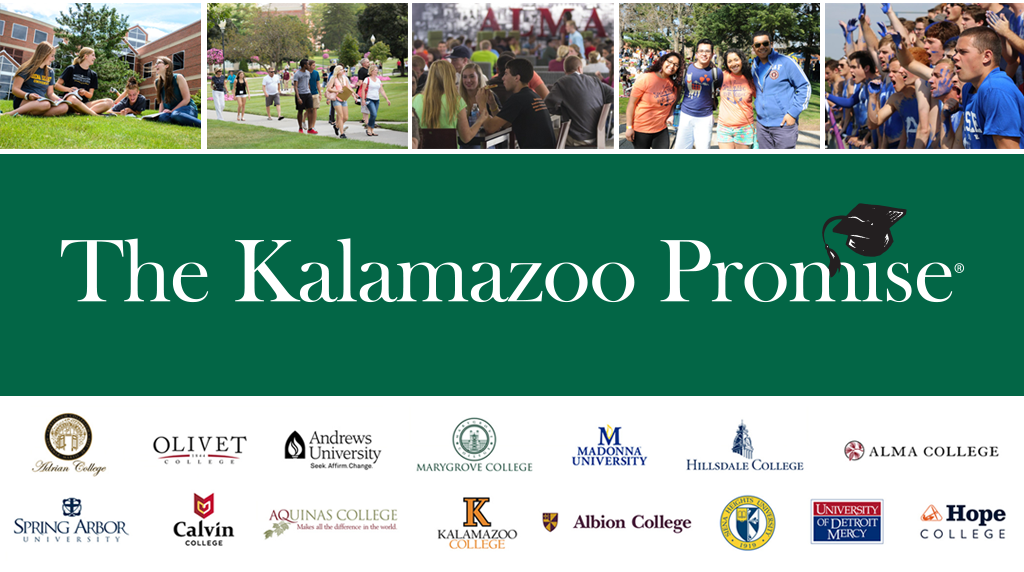
Almost everyone nowadays can cite scary statistics when it comes to the cost of college education.
Nationwide, the average annual tuition at private schools has more than tripled in 30 years jumping to $32,405 this year, according to inflation-adjusted statistics from the College Board.
But the cost of an elite private school education is nothing for students in Kalamazoo public schools.
You read that right.
The cost of Michigan’s 15 independent colleges and universities is zero for students who graduated from Kalamazoo Public Schools and attended since kindergarten. Graduates who attended since at least seventh grade will receive 75 percent of their tuition.
The Kalamazoo Promise is a revolutionary program that is changing lives and putting college in reach for 5,000 eligible graduates since it was launched and funded by anonymous donors in 2005.
The schools now send 85 percent of students to college, whose graduates can expect to earn $1 million more over their lifetime than peers whose education stopped at high school.
And what an education they can get, especially at Michigan’s independents: Adrian College, Albion College, Alma College, Aquinas College, Calvin College, Hillsdale College, Hope College, Kalamazoo College, Marygrove College, Olivet College, the University of Detroit Mercy, Andrews University, Madonna University, Siena Heights University and Spring Arbor University.
The schools pride themselves on helping students forge their own path. Classes are taught by professors, not teaching assistants, with average class sizes of just 17.5 students.
The independents open doors to a host of careers, from business and engineering to education and nursing, supported by a nurturing network of alumni who have become leaders in their fields.
And the independent colleges look like the world around them. One in 4 students at Michigan private colleges and universities is African American, American Indian, Asian, Hispanic or Latino.
Be bold. Be different. Go independent.
Holidays are About Tradition at Michigan’s Top 15 Independent Colleges
Holidays are all about tradition. And big state schools certainly have their own. Unfortunately, they often go something like this: Cram for finals, throw dirty clothes in a bag and say hurried goodbyes to your dorm mates before hopping in a car and leaving town.
Michigan’s independent colleges and universities do things a bit different. And they’re proud of that. Built around community and cohesion, the schools embrace all the wonder and tradition the holiday season has to offer, from choir concerts and campus sing-alongs to tree decorating parties.
At Hope College, students and community members have gathered for eight decades for Christmas Vespers. The first event was held just hours before the Japanese bombed Pearl Harbor on Dec. 7, 1941, and held every year since. That first year, 500 people came. It’s grown every year since to the point where people start inquiring in August about tickets for the choir and symphony concert.
For more than 40 years, Albion College has gathered for the Festival of Lessons and Carols, which features several choirs and intersperses carols with readings that trace Biblical history. For decades, the popular event has begun with “Once in Royal David’s City” and ended with a candlelit rendition of “Silent Night.”
For 22 years, Alma College’s Festival of Carols gathers 110 members of the Glee Club, College Chorale and Alma Choir for carols and candle lighting to commemorate both Christmas and Hanukkah.
Spring Arbor University’s Hanging of Greens has brought the campus and community together for 15 years, with an event that includes caroling, tree-lighting, hot chocolate and horse carriage rides.
A new tradition continues at the University of Detroit-Mercy, which produced a live version of holiday classic “It’s a Wonderful Life” for the second time this month. The twist is the play is produced as a radio show, featuring a handful of actors playing dozens of characters in the Frank Capra classic before a live audience.
At Aquinas College, the college gathers every year to light a Christmas tree that was planted in 2010 by the Student Senate to reflect the school’s commitment to the environment.
Sound like a lot? We’re just getting started.
Kalamazoo College has celebrated BachFest Christmas, a concert of the famed composer, for every year since 1970. Calvin College has the Sleigh Ride Around the World, which combines Yuletide movies projected on the big screen with Christmas classics from the college’s Wind Ensemble.
We could go on and on.
Adrian College organizes a campus wide party. Marygrove University, Siena Heights and Olivet College host a Christmas concert. Andrews University has a tree-lighting and Christmas concert.
Madonna University puts on the “Christmas Carol” play. Hillsdale College has both a concert and annual Christmas video from its president.
Some of the events may seem similar, but what makes them different – and so special – is that they’ve become part of the fabric of the individual communities around them.
That’s because Michigan’s 15 independent colleges and universities are enmeshed in their cities and towns and realize that college is about experience almost as much as it is about learning.
National leaders in education, the schools emphasize community over crowds and a spirit of togetherness and cohesion that just doesn’t exist at big state schools.
With low class sizes and award-winning faculty, the schools are proud that students forge lifelong bonds with professors.
Often less expensive than public institutions, the independents boast higher four-year graduation rates for a truly unique and affordable experience.
Be bold. Be different. Go independent.

